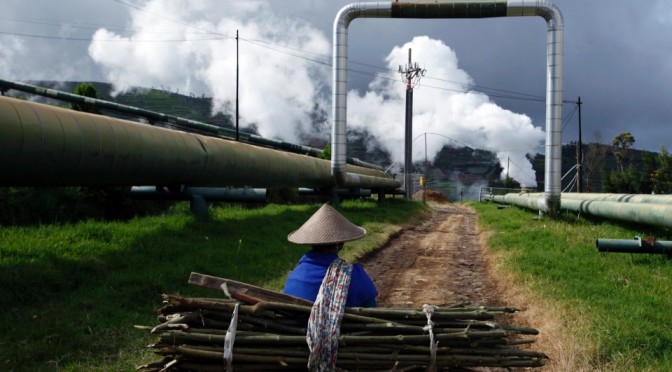As climate concerns mount, and the world looks to gather in Egypt at COP27 in early November to deliver a collective response to the crisis, a new report outlines a comprehensive energy roadmap for accelerating renewable energy and energy transition resources in Indonesia.

A collaboration between the International Renewable Energy Agency (IRENA) and the Indonesian Ministry of Energy and Mineral Resources, the Indonesia Energy Transition Outlook builds upon IRENA’s recent outlook for ASEAN and charts a decarbonisation highway for Indonesia to 2050 and aligns the country to the Paris Climate goals.
According to the report’s key findings, if Indonesia accelerates its energy transition to a system based largely on renewable energy, the country could attain its ambitious longer term targets, a climate-neutral pathway, while also reducing the cost it spends on energy.
The report was launched at a high-profile event held in the central district of Indonesia’s capital Jakarta in the presence representatives from the government, development partners, private sector and financiers. The report and wider work in ASEAN was funded by generous support from the Government of Denmark.
Participants included Gurbuz Gonul, Director, Country Engagement and Partnerships, IRENA, Dr Dadan Kusdiana, Director General of New, Renewable Energy and Energy Conservation, MEMR and Satya Widya Yudha, National Energy Council.
Moderated by Adam Adiwinata, a consultant with IRENA, the event discussed the report’s findings on topics including investments, capacity expansion, grid and flexibility and markets.
“We are very grateful to IRENA for supporting us in developing the Indonesia Energy Transition Outlook, which captures all possible options for Indonesia to accelerate energy transitions to achieve a net zero emissions target. The Outlook will be used as an input for the on-going Net Zero Emission Roadmap.” Said Dadan Kusdiana in his opening speech.
In his own remarks at the publication’s launch, Gurbuz Gonul, IRENA Director for Country Engagement and Partnerships said, “Based on these highly decarbonised pathways for Indonesia, the country’s energy mix would change from one dominated by fossil fuels to one that sees rapid uptake of renewable electricity and renewable direct use,” said Gurbuz Gonul, IRENA Director for Country Engagement and Partnerships. He added, “Each of these scenarios shows how the availability of key technologies influences the decarbonisation journey to allow for a balanced perspective on the impacts of relying on different technologies.”
The launch event also included thematic panel discussions addressing the findings of the report, on topics including investments, capacity expansion, grid and flexibility, and markets. With experts from Danish Energy Agency and Indonesia’s Institute for Essential Service Reform (IESR), the event also discussed the many potential opportunities that were in line with the report’s vision for the future of energy in Indonesia.
Quoting liberally from the report, panelists highlighted the need for significant scale-up in energy investment with up to USD 2,420 billion in cumulative investment to 2050 needed across the energy system; from generation to efficiency and enabling infrastructure.
According to the Paris Agreement, Indonesia’s Nationally Determined Contributions sets an unconditional reduction target by 29% and conditional target up to 41% of the business-as-usual scenario by 2030. More recently, the country pledged a more ambitious carbon emission cut, committing to reach net zero by latest 2060.
The session also discussed the current energy policy landscape in Indonesia and IRENA’s key policy recommendations and opportunities. It recommends that Indonesia accelerate its energy transition by building energy policies based on renewable energy development to drive economic growth and job creation. A move that needs to be supported by a predictable long-term energy plan prioritising clean energy investments consistent with national and regional energy policies.
